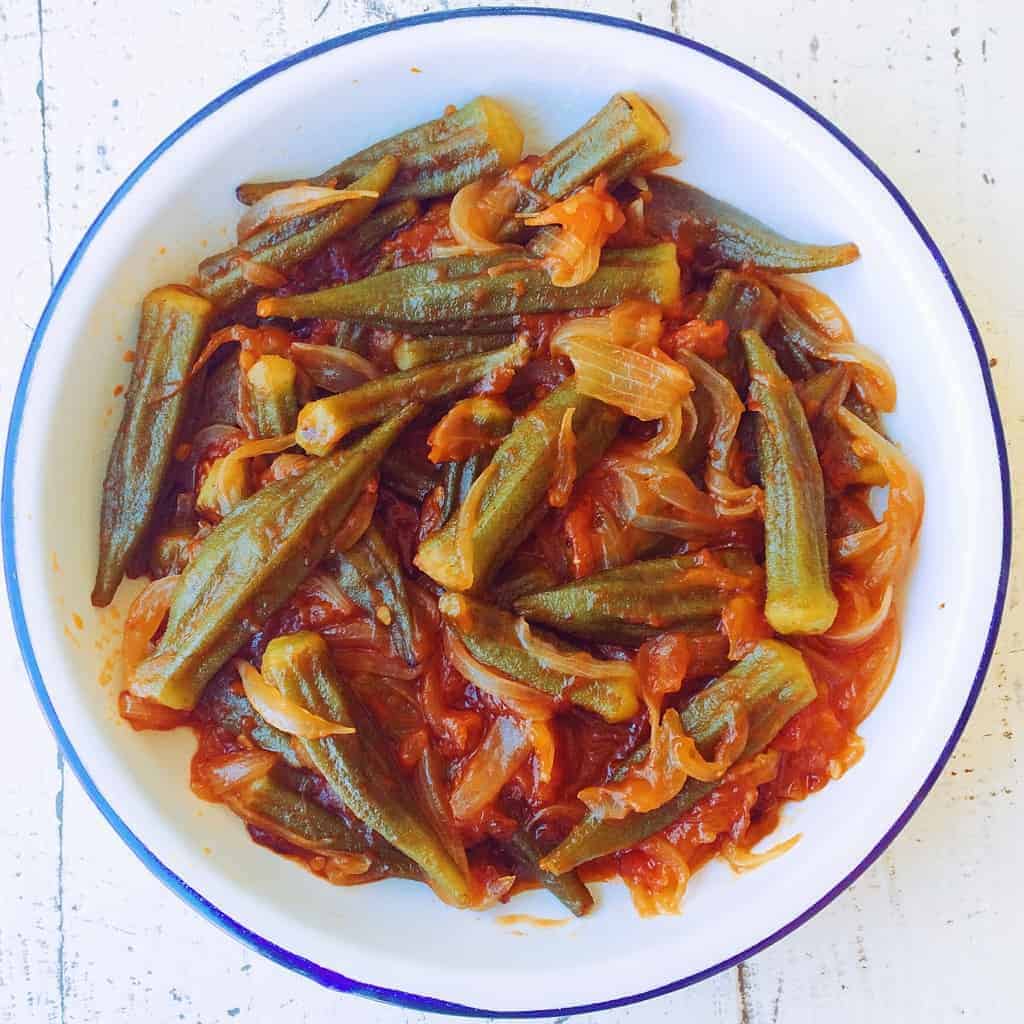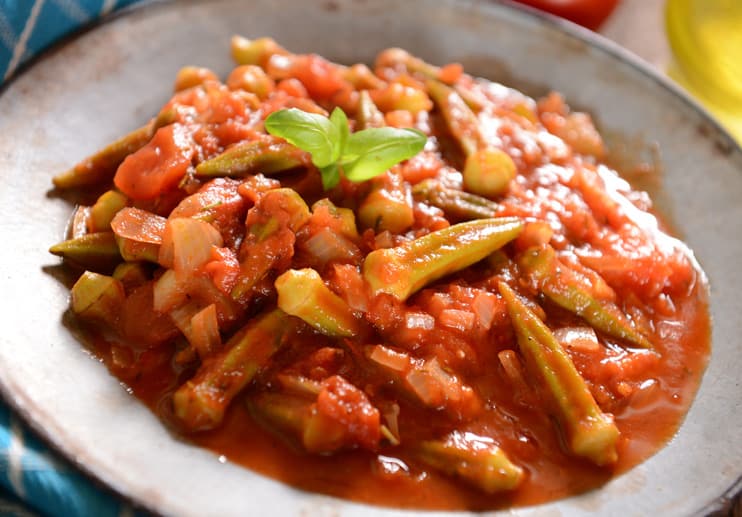Okra means summer! But few vegetables polarise world opinion as much as okra, dividing us into their friends and foes and raising passionate tensions in both cases. I confess that for people like me who adore them, it is incomprehensible to me how and why there are haters.
Okra has a distinctive sweet taste of freshness and vitality that is truly unique. Okra can range in texture from firm to caramelised, depending on how it's cooked. Or, of course, to break it and take out what those who dislike them call "saliva", which, apart from a visual nuisance, does not change its taste impression in any way.
The way to prevent okra from bursting during cooking is to make sure the environment where they are cooked is acidic, and this is just one of the reasons we add vinegar to classic okra recipes in Greece. The other reason is that the vinegar matches perfectly with the distinctive taste of okra. It highlights it, flavours it and intensifies it.

The other element that goes well with okra is caramelised onion, which pairs with its spicy sweetness. And, of course, the tomato and the abundant parsley associated with the freshness they exude as a vegetable. Thus, the combination of sweet and sour flavours, with contrasting intensities, makes the okra dishes of Greek cuisine incredibly delicious.
We okra lovers find this, and we long to eat them fresh in the summer. In fact, some of us are looking for small a handful to be firm and tasty to the bite and the eye so they look like logs. In ideal conditions, we clean them and leave them in the sun for a few hours after sprinkling them with a little vinegar to help maintain their firmness during cooking. And the flavour intensity at the same time!

But even the larger okras do not spoil us as long as they are tender. And since we can't find okra all year round and need to feel summer in the middle of winter, frozen okra also works well in cooking. One good thing to watch out for with okra when we get to the final stages of cooking is to stir by swirling the pot rather than spooning in and hurting them.
To the eternal question of whether it is better to make them in the oven or the pot since I have experimented with the exact same recipe at the same time and therefore with a comparable result, I have to reveal that they come out slightly tastier in the oven. But the difference is smaller than we can imagine, and anyway, if you are more comfortable with cooking in the pot, you are not entering into a serious compromise.
Okra is a staple appetiser in Indian cuisine and many African countries, generally with spicy flavour combinations. They are also part of New Orleans cuisine, again in spicy versions and as fried. But in the rest of the European kitchens, they practically do not exist. They are used as a side dish, either boiled or fried, often sliced vertically, and I have never come across them as a main course or a main side dish. Only we and the Middle East give them such a role.
So we Eastern Mediterraneans often combine them with garlic, but the main dish that makes them the hero in our kitchen, apart from okra laderas, is chicken with okra, where the welcoming chicken with intense flavours is perfectly combined with this vegetable with an excess of personality and creates a dish that captivates us okra lovers.

However, I have to note that the ideal execution of the dish is to make the chicken and okra preparations separately and combine them at the end so that there is absolute control by the cook in achieving the right textures, as well as the ideal cooking time of the two of basic materials, do not necessarily coincide.
Having experimented with okra, I have come to the conclusion that the quantity, quality and type of vinegar we will use in cooking plays a catalytic role in the final taste of the dish. So, in my own recipes, I have used balsamic, which, together with the acidity, offers sweetness and a rounder and more complex flavour, which I find perfectly suits the particularity of okra. And I've gotten a lot of feedback that with this approach, people who used to hate them suddenly love them, so it might be worth trying them that way.
I pity the okra haters deprived of something so delicious from their taste repertoire. But for the rest of us, let's stick to the basic principles of their technique, cooking in an acidic environment for a firm texture and with sweet and sour combinations that elevate the uniqueness of its taste! Long live the summer!
DIMITRIS PAPAZYMOURIS is a columnist for Olive Magazine.
READ MORE: Fakes: Greek Lentil soup recipe.

